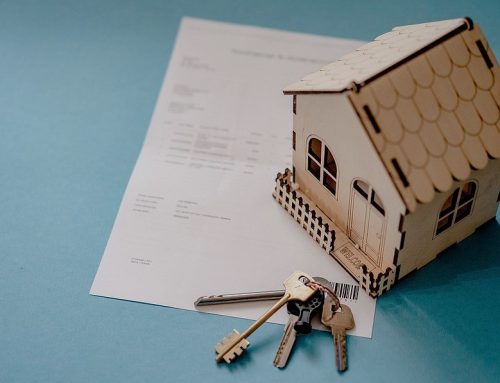Why You Should Prequalify for a Home Loan and How to Do It
Looking to buy a home? Getting prequalified for a real estate loan can make the house-hunting process smoother and give you a competitive edge over other bidders. Let’s dive into the benefits and steps to get prequalified with your lender.
What is Mortgage Prequalification?
Prequalifying for a home loan means a lender estimates how much it might loan you. It’s fast, generally can be done online, and doesn’t hurt your FICO score. Doing this gives you a good idea what your budget might afford, and it also can strengthen your offer.
What is Mortgage Preapproval?
This is a higher and more useful step, but it’s more work. Prequalification requires a deeper dive into your finances, spending and income, and it offers you a more accurate loan amount. If you’re really serious about buying a home, you should do this. Everyone in the process takes your quest more seriously – particularly sellers choosing among multiple bidders. It tells everyone that you are ready to do this.
How to Boost Your Chances of Prequalification
Your credit picture is a snapshot in time. You can make it better (and worse) by paying attention to a few areas and shoring up any deficiencies, if you are able. Here are a few of them:
Boost Your Credit Score
If your FICO is 800 plus, you’re golden. If not, see if you can pay off or pay down debts – particularly high interest credit cards. Once you do that, keep those balances as low as possible. Also, check your credit reports and get them to fix anything that’s incorrect. Dispute errors immediately.
Also, pay bills on time, particularly the “must pay” bills like utilities and mortgage. Paying bills on time demonstrates that you are on top of your finances, making you a better credit risk.
10 Ways to Boost Your Credit Score Before Applying for a Home Loan
Lower Your Debt-to-Income Ratio
Your debt to income ratio, also known as DTI, tells lenders how close to the edge you are in how much money you have coming in and going out each month. Lower debt and higher income means you have more wiggle room if (when) some unexpected (and too often expensive) bill shows up in the mailbox.
You can improve this by paying down existing debts and not adding new ones. People with low DTI ratios tend to manage finances well, and lenders feel safer offering them loans.
Get a Bigger Down Payment
The more you put down on the house, the greater equity you have in it and the less likely you would be to walk away. Lenders and sellers both love that. So, if you can, save more by putting aside down-payment money regularly and separately, selling off unneeded assets, creating more income, spending less, etc. Other potential benefits of this would be the ability to buy more house, lower your interest rate, and appearing more financially solid to lenders and sellers.
Show a Solid Income History
Lenders love stable – or growing — income. The better you can demonstrate steady employment and earnings, the better your prequalification chances. To that end, find recent pay stubs and evidence of continued employment. If you have bank statements showing income deposits over time, that also will help. Also have the last couple of years of tax returns in your financial folder for the lender.
If you are self-employed, it’s a bit more complicated but doable. Your tax returns might be more important, and you may need to show business financials showing how well that’s doing, so have those available.
If you’re moving to a new area or just changed employers, that might not be a big deal if you’re in the same industry, or even a closely related one. Lenders understand that people move up and around. You’ll still need the income information from the last employer plus the new employer, or an offer letter if you haven’t started yet.
How to Get Prequalified for a Home Loan
After you have gathered your information and documents and information, meet with a lender (or more than one). You also can apply online. If you have all the info, this should be a short and fairly simple process.
What you’ll get is an estimate about how much you could borrow called a mortgage preapproval letter, and you’ll know the price range of homes you search. It doesn’t necessarily mean you are obligated to use that lender.
A Preapproval Has a Shelf Life
It’s usually two or three months (be sure to check that), which is generally plenty of time to find and purchase a home. If it’s not long enough, those letters often can be renewed, perhaps requiring some of the information to be updated.
Finally, Prequalification is Nearly Necessary in Today’s Housing Market
With changed rules regarding agents and buyers, buyers have to sign an agreement before agents can show them houses. How that works is still being sorted out by experience and legal maneuverings. But everyone one in the process is more attuned to using and collecting all the salient paperwork (and not wasting people’s time), so in some cases it will be much harder to even look without at least a prequalification letter. And if you’re going that far, you might as well get the more valuable document, the home loan prequalification.
Sellers are also more likely to require that, and it makes your offer – and any subsequent negotiation – more powerful. It shows you’re ready to go, not just looking around. Do it.
Realtor commission changes are here: What they mean for homebuyers and sellers
By Hal DeKeyser
The post Why You Should Prequalify for a Home Loan and How to Do It first appeared on Arizona Realty Network.
Related Posts

Contact Form










